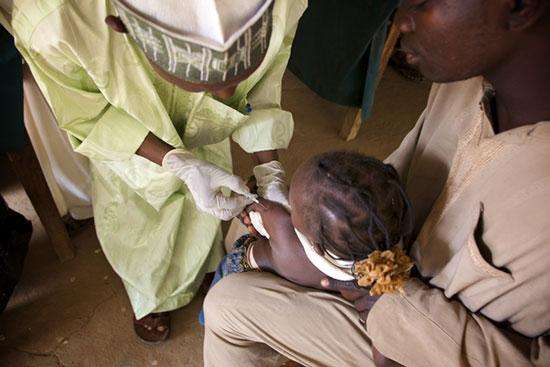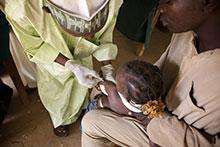MSF supported the Nigerian Ministry of Health in successfully halting a measles outbreak that began in December 2012.
A measles outbreak in northern Nigeria’s Katsina State has come to an end after 28 weeks. Doctors Without Borders/Médecins Sans Frontières (MSF) supported the Nigerian authorities throughout the outbreak by providing epidemiological surveillance and case management in Katsina’s 34 local government areas.
The outbreak began in December 2012 in the southern part of the state during the dry season and gradually spread to all 34 provinces. The outbreak lasted 28 weeks, during which time 36,428 cases of measles were reported and 198 people died.
MSF began providing support to the Nigerian Ministry of Health (MoH) in February 2013, regularly visiting 300 health facilities and donating treatments for 14,290 measles cases, including for 420 complicated cases.
Unfortunately, due to the shortage of measles vaccines in Nigeria, initially only 10 percent of the vaccines required to conduct a mass vaccination campaign were allocated to Katsina State. In response, in the first week of March, MSF decided to further support the authorities by conducting a mass vaccination campaign in five of the 34 local government areas. Some 217,500 children aged six months to five years were vaccinated. Due to this campaign, a decline in the number of cases was observed in these five areas.
Due to the relationship between measles and malnutrition, MSF also conducted systematic screening for malnutrition. A total of 215,038 children aged six months to five years were screened. The severe acute malnutrition rate was found to be 1.8 percent and the global acute malnutrition rate was 6 percent. Following MSF’s intervention in Katsina, Epicentre, MSF’s epidemiological research branch, conducted a vaccination coverage and malnutrition survey to provide a more thorough analysis of the situation, with results expected by the end of August 2013.





